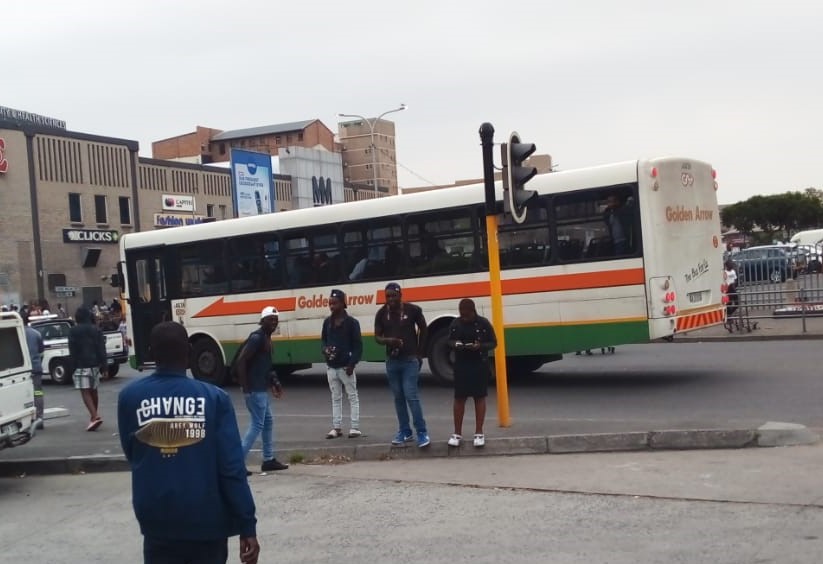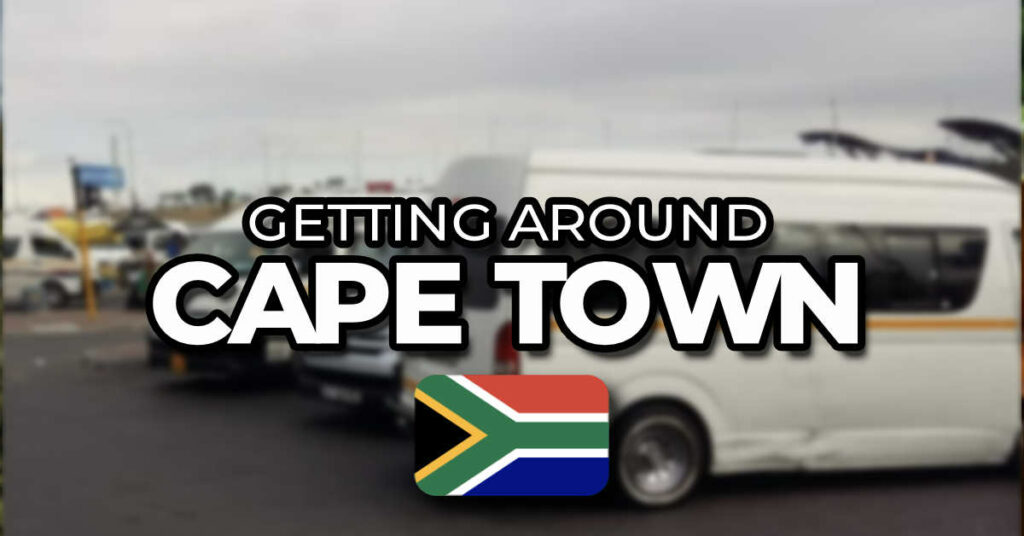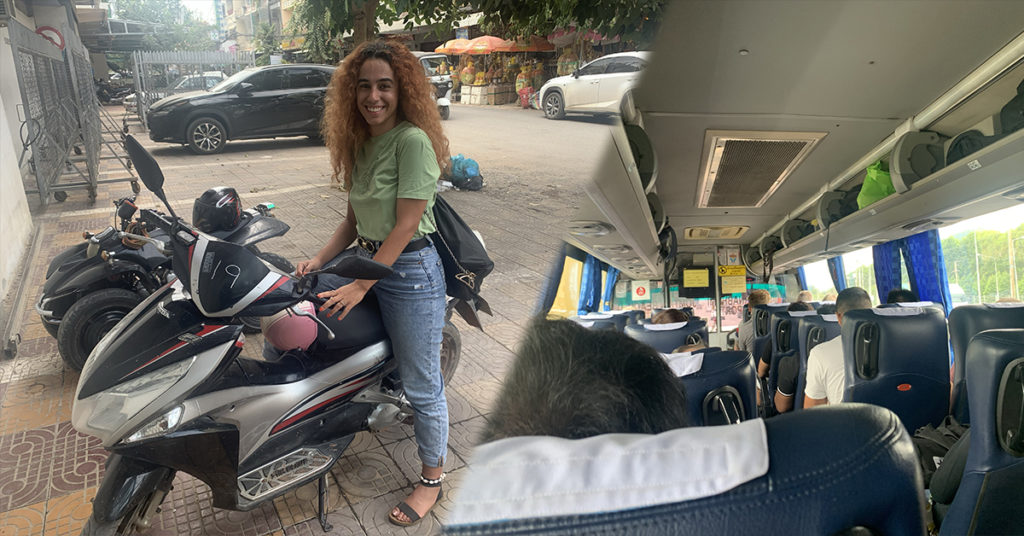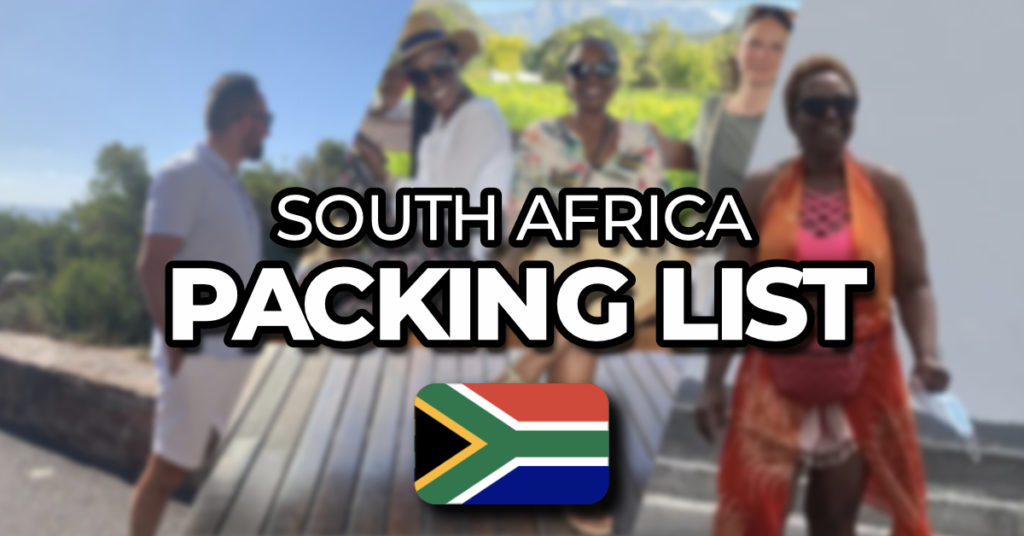Cape Town, often referred to as the Mother City, is a melting pot of cultures, cuisines, and landscapes. From the majestic Table Mountain to the historic Robben Island, the city offers a plethora of experiences for every traveler. However, to truly immerse oneself in the beauty and vibrancy of Cape Town, understanding its transportation system is crucial. This article provides a comprehensive guide to getting around Cape Town, ensuring tourists can navigate the city with ease and confidence.
Here are the main ways you can get around Cape Town:
- Uber/Bolt/InDrive: Uber is a popular and reliable form of transportation in Cape Town. It is considered safe and accessible. Bolt is another option. However, there are areas that Uber won’t go in Cape Town for safety reasons. InDrive is a great option for cash-paying passengers as you can negotiate your fee.
- Local Taxis (Mini Buses): Local taxis, particularly mini-buses, are a common mode of transportation in townships and the downtown CBD. They are the cheapest option but often involve reckless driving and may lack good customer service. Vehicles are sometimes neglected and dirty. They also serve routes from the CBD to outer suburbs and townships. Taxi fares are inexpensive, such as a ride from the CBD to the Neighborgoods Market in Woodstock costing around 10 ZAR ($0.50).
- Buses: There are two types of buses in Cape Town: MyCiti Bus, owned by the city, and Golden Arrow buses, privately owned. MyCiti is considered the safest and most reliable option. It features security cameras at stations, runs on schedule, provides live updates, and serves most tourist destinations, including transportation from the airport to the city. A single trip from the airport to the city costs around 90 ZAR ($5). MyCiti uses a card system, and travelers can purchase a “myconnect card” for 35 ZAR ($2), load it with money, and use it for their stay. Golden Arrow buses are affordable but often crowded during peak commuting times. They travel to various areas, including those flagged for crime, making safety a concern, especially for tourists.
- Trains: Metrorail operates trains in Cape Town and across the country. The service has deteriorated over the years, with limited availability in Cape Town, and specific routes. Safety concerns, including criminal activity like train burnings and cable theft, make trains a less desirable option for tourists.
Uber/Bolt



Uber in South Africa is widely regarded as one of the most favored means of transportation, because of its convenience and accessibility. It’s one of the better ridesharing apps offering more security features and tending to be more reliable than the other options such as, Bolt, and InDrive. Bolt is also a great service to use for taxis and is cheaper than Uber, however, it includes fewer safety feautures when compared.
Personally, I’ve never had any problems with either app, but I have friends who have told me to steer clear of InDrive due to safety precautions. Whether InDrive is dangerous or not I don’t know.
For a 20-kilometer journey, both Uber and Bolt typically charge approximately 180-250 ZAR, ($10-$14.)
It’s also worth saying that there are specific regions where Uber refrains from operating due to safety considerations, and low traffic conditions in South Africa.
Is Uber Safe in South Africa?
Uber is generally considered safe in South Africa, although there have been occasional reports of passengers feeling uneasy or experiencing concerning incidents. To enhance safety, Uber has implemented measures such as an emergency service line and the ability to share trusted contacts within the app to track your ride.
Most Uber users attest to feeling secure when using the service as long as they exercise necessary precautions, maintain politeness with drivers, and avoid becoming overly friendly.
It’s essential to note that while Uber is generally safe, there have been incidents of attacks and robberies during rides. Carjacking is also a safety concern in South Africa. Many Uber drivers will refuse to enter areas deemed unsafe, but it’s crucial to remain cautious and vigilant at all times.
To ensure your safety when using Uber in South Africa, consider the following precautions:
- Verify the driver’s identity before announcing your name to them, as the person picking you up may not always match the photo on the app.
- Confirm the registration number of the vehicle to ensure it matches the information on the app, preventing you from entering the wrong car.
- Choose Uber or Bolt for their comprehensive in-app safety features, with Uber being the preferred option in this regard.
- Establish a habit of having family members or local friends track your rides if you feel uncomfortable with the driver, especially when there are deviations from the usual route or discrepancies in the driver’s appearance compared to the app photo.
Local Taxis (Mini Buses)

In the townships and downtown Central Business District (CBD), locals predominantly rely on local taxis or minibuses as their primary mode of transportation. While this option is budget-friendly, it comes with the drawback of often erratic and reckless driving. Moreover, don’t anticipate exceptional customer service; many of these vehicles are not properly maintained and can be unclean. Due to its affordability, the service can be economical but occasionally lacks politeness. These taxis also operate routes from the CBD to suburban areas and townships. For instance, a taxi journey from the CBD to Woodstock’s Neighborgoods Market, approximately 4 kilometers (2.5 miles) away, may cost as little as 10 ZAR, equivalent to about 50 cents.
Buses


There are two types of buses available for transportation in the city:
- MyCiti Bus, which is operated by the city of Cape Town
- Local, privately run buses known as Golden Arrow
MyCiti stands out as the city’s premier transportation choice, renowned for its safety and reliability. Each MyCiti station is equipped with security cameras, and the buses strictly adhere to a consistent timetable. In the event of any disruptions, real-time updates for your bus are readily available. Not only are the fares reasonable and budget-friendly, but MyCiti also offers extensive coverage, encompassing virtually all the tourist attractions you may wish to explore, including the route from Cape Town Airport to the city center. The cost for a one-way trip from the airport to the city is approximately 90 ZAR (equivalent to $5).
To access MyCiti, you’ll need to acquire a “myconnect card” for a modest fee of 35 ZAR ($2), which can be loaded with the desired amount of money for your transportation needs at a bus station or participating retailer. All the essential information can be found on their website, through their app, or by simply seeking assistance from a staff member at the bus station.
On the other hand, Golden Arrow buses are privately owned by a local company and are favored by daily commuters for their cost-effectiveness. However, they tend to get quite crowded, especially during peak hours when people are commuting to work or school. It’s worth noting that safety concerns arise with Golden Arrow buses, as they serve areas that have been identified as crime hotspots, potentially making them targets for such incidents. While they are a preferred choice among locals, for tourists, I personally do not recommend using them.
Trains
Metrorail manages the train services in Cape Town and throughout the country. Unfortunately, the quality of this service has been steadily declining over the years, especially in Cape Town. While the trains do still run, they are limited to specific routes, and they are not available everywhere in the city. Many of these routes have become prime targets for criminal activities, leading to incidents such as train burnings and theft of cables from the tracks. Consequently, safety has become a significant concern. Given these challenges, my advice would be to avoid the train experience altogether.
Other Modes of Transport
Cape Town offers a range of other transportation options tailored to different needs
- Cab or Taxi: Traditional metered taxi cabs are available throughout the city. They offer a convenient way to travel to popular tourist spots.
- Car Hire: Renting a car provides the flexibility to explore Cape Town at one’s own pace. Numerous rental companies cater to different budgets and preferences.
- Bicycle: For the environmentally conscious, Cape Town is a bike-friendly city. With dedicated bike lanes and rental services, tourists can easily explore the city on two wheels.
Cab or Taxi
There are many companies that run cabs or metered taxis in around Cape Town and you can definitely get one from the airport. Unicab is one of the major ones that offers different types of cars depending on your needs. A 20 kms (12.5 mi) ride on a normal sedan costs around 360 ZAR ($20). There are other service providers like Intercab who offer similar rates and also conduct day tours to various places such as Cape Agulhas (where the two oceans meet).
Car Hire
Hiring a car is one of the most popular options for getting around Cape Town and around the country in general if you don’t mind driving yourself in a foreign country. There are, however, a few things you need to know in advance before you do that. First of all, you will need an international driver’s license, should be over 18 years old, and must have held your license for a stipulated number of years.
There are many car hire options both at the airport as well as around the city, and you just have to choose one that agrees with your budget and make sure that you’re happy with the terms and conditions. Hiring a car may be very expensive especially because you have to take car insurance as well, in case you are in an accident. This is what pushes the costs up depending on the option that you choose.
Comparing the quotes across three types of cars shows nothing less than 2829 ZAR ($160) per week for a decent-sized car that takes at least 3 luggage sets. This doesn’t include any additions such as roadside assistance (50 ZAR / $3) per day, other insurance for damages, and petrol (gas).



Motorcycle Hire
Just like car rentals, there are many companies that rent out motorcycles in Cape Town and you can certainly pick one up from the airport as well. A motorbike is great if you want to join one of those cycle tours or you are an adventurous spirit who wants the freedom to travel lightly with no luggage. I should have also mentioned under car hire that parking is very limited in the city and so a motorbike might be a better option for those who are traveling lightly or if you just need one for a few days to get around the city and visit some of the nearby towns or the Winelands.
In low season (May-August) you can get one for as low as 746 ZAR ($40) a day but the same would cost you 1079 ZAR ($60) in season with standard insurance.


For anyone who is looking for something smaller like a scooter, Vespa and Scooter Dr. offer daily, weekly, and monthly rentals in Cape Town. Vespa also conducts tours to some of the popular tourist attractions.


Bicycle Hire
For those who prefer something lighter hiring a bicycle is an easy option too with various businesses that offer this service in Cape Town. Maybe you need a bicycle to explore the city for a few hours, the whole day, or for the duration of your stay. All these options are available to you. Up Cycles, for instance, is a company that has a few branches in the city including Sea Point and the V&A Waterfront, where you can pick up a rental bicycle. They also have kids’ bikes if you have a young family.
For those who want mountain bikes, there are companies like Ride In bike hire and Adventure shop both of which are out in Stellenbosch. Cape Town Cycle Hire is based in the city, they have different types of bicycles and they deliver to you.
However, if you are not a fitness enthusiast, or are not very experienced in cycling E-Bike Cape Town not only rents out e-bikes, but they also conduct guided tours around some of the major city’s tourists’ attractions like Table Mountain and Chapman’s Peak. One of the best things about these is that they have pedal assist which requires minimum effort from you as you cycle around. An e-bike rental starts at 750 ZAR ($42) a day whereas a normal “city cruiser” bicycle starts at 280 ZAR ($16). Mountain bikes are more expensive than the normal bikes at 650 ZAR ($36) a day.



Long-haul buses
Long-haul buses are great for those who want to travel from one city to another or across the different provinces in South Africa. The two popular bus companies that operate between Cape Town and other cities are Greyhound and InterCape because they do more routes across the country and outside the country.
The cheapest option from Cape Town to Johannesburg for instance was 330 ZAR ($18) and the most expensive on the same day was 900 ZAR ($50) at the time of checking the prices. Please note that this was out of season. The price really just depends on whether you’re willing to slum it or you prefer some level of comfort.


Tours, Helicopter Rides & Private Driver Hire
Another great way to get around Cape Town is by taking bus tours or hiring a driver. For instance, to get to Cape Agulhas, Cape Point etc. you have one of 4 options:
- The Red Bus – daily bus tours depart from different city pick-up points, including Long Street, the V&A Waterfront ticket office, as well as stops in Green Point, Sea Point, and Camps Bay. This comprehensive bus tour covers all the captivating sights along the way, such as Ou Kaapse Weg, Muizenberg, Boulders Beach, Simon’s Town, Cape Point, and the Cape of Good Hope. The regular fare for adults is 525 ZAR ($30), with a child rate of 275 ZAR ($15) available (discounts during off-peak times). Allocate a full day for this adventure; you won’t regret it.
- The Baz Bus – conducts tours of Cape Town. Their route covers Chapman’s Peak, an optional stop at Boulder’s Beach, Cape Point, and the Cape of Good Hope, similar to other tours. They provide daily tours and pick-up services from hotels and hostels. The basic fare starts at 900 ZAR ($50), with additional options like entry tickets to Cape Point available.
- Taxi or Shuttle from private company – Opting for a taxi or shuttle service is a common and convenient way to explore Cape Town. Numerous reputable local companies operate along these routes, offering peace of mind and the flexibility to enjoy wine tasting without worrying about driving. Shuttle rates vary depending on inclusions and the number of passengers, so consider comparing options online or asking your hotel/hostel for recommendations.
- Train (not recommended)
- Helicoper rides – For those with a flexible budget, consider taking a thrilling helicopter ride. This 50-minute experience offers breathtaking views of Table Bay and False Bay, with a cost of approximately 7950 ZAR ($440) per person.

Thola is a research psychologist who left the field in 2019 and has been writing professionally for various magazines including her own blog ZuluSingleandFab since then. She also writes as a ghostwriter for various clients and has published 5 books to date. Her love of writing started during the COVID-19 lockdowns when she created her website to share her travel stories and her health and fitness journey. A gym enthusiast and lover of healthy food, she published a book, “Fit and Fabolous at Fifty” on Amazon Kindle in 2020 and is currently in the process of writing her second book about her life experiences from leaving a powerful corporate job to working as a freelance writer.


